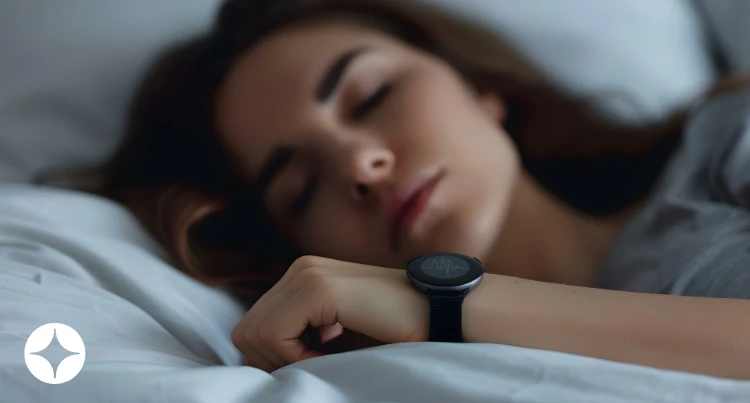
Getting a good night's sleep is crucial to waking up ready to face the day ahead. While one bad night isn't a big deal, continued poor sleep can lead to low mood and negative health consequences. Good sleep hygiene habits1 can help you rest better:
- Setting a regular bedtime.
- Creating a relaxing bedtime routine to prepare for sleep.
- Outfit your bed with comfortable sheets, blankets, and pillows.
- Keep your bedroom dark and quiet.
Experts also recommend that you ban the use of electronics2 in your bedroom. However, an emerging trend for wearable sleep-tracking devices and smartphone sleep apps promises to track your sleep cycles and provide you with reliable data to improve your sleep. The question is, do they work as intended?
The Role of Sleep-Tracking Apps
Apps can be excellent tools for providing information and helping increase awareness of your needs. They monitor your sleep phases, patterns, and duration3 to show how lifestyle and sleep hygiene changes can positively impact sleep quality. Sleep app technology continues to get more sophisticated, but some experts question the accuracy of the data they provide, stating their limitations and inaccuracy.4 Wearable devices are typically more accurate, but still faulty.
One of the problems with religiously following sleep app numbers is failing to pay attention to how your body actually feels in favor of tracking numbers. Another is a lack of education. Sleep cycles are complex, transitioning between light, deep, and REM stages of sleep over about 90 to 110 minutes, which means deep sleep only accounts for a fraction of your total sleep. If you don't know this information, you may see a low number on your app and assume your sleep was poor. Also, it's normal and natural to occasionally have poor sleep. Getting bombarded with less-than-helpful reminders of a restless night could contribute to anxiety.5
When Awareness Turns to Obsession and Self-Sabotage
Sleep app data can help you find a sleep routine that works for you, but if you become too reliant on tracking your sleep score each night, you could develop an unhealthy obsession with your sleep performance, called orthosomnia.6 This may also manifest as self-diagnosing sleep problems or spending too much time in bed in a misguided effort to perfect sleep data. Following your sleep too closely with wearable devices and applications can even start to worsen insomnia and destroy your sleep quality if you become overly concerned with achieving optimal sleep scores.
Finding a Healthy Balance for Optimal Sleep Health
If you use wearable sleep tracking devices or sleep apps on your smartphone, do so mindfully. Use the data to help inform your sleep health awareness and start a conversation with your doctor regarding any concerns you have. Don't rely solely on the data these apps provide, as there is no way to know its accuracy, and following it too closely can actually lead to worsening sleep and the development of additional problems. Always follow your doctor's advice, and concentrate more on improving your sleep hygiene, reducing stress and anxiety, and boosting your overall health to help you achieve better sleep.
Sources
- Cleveland Clinic - Sleep Hygiene: 7 Tips for a Better Bedtime Routine
- NIH News in Health - Good Sleep for Good Health
- Johns Hopkins Medicine - Do Sleep Trackers Really Work?
- National Library of Medicine - Sleep apps: current limitations and challenges
- Right as Rain by UW Medicine - Can't Fall Asleep? Blame Your Sleep-tracking App
- Sleep Foundation - What Is Orthosomnia?




